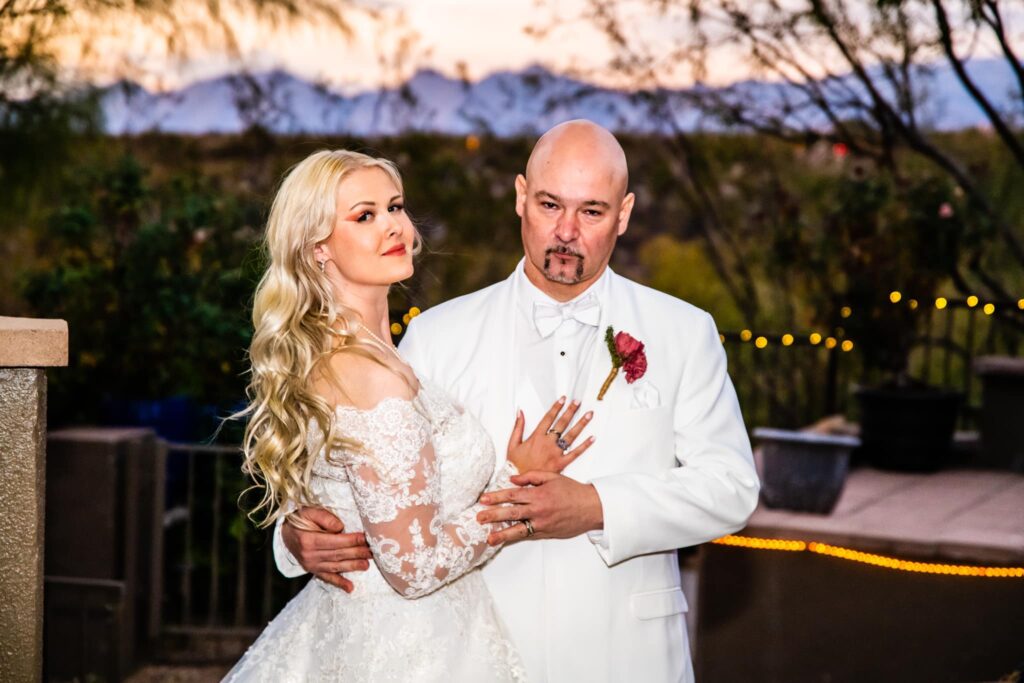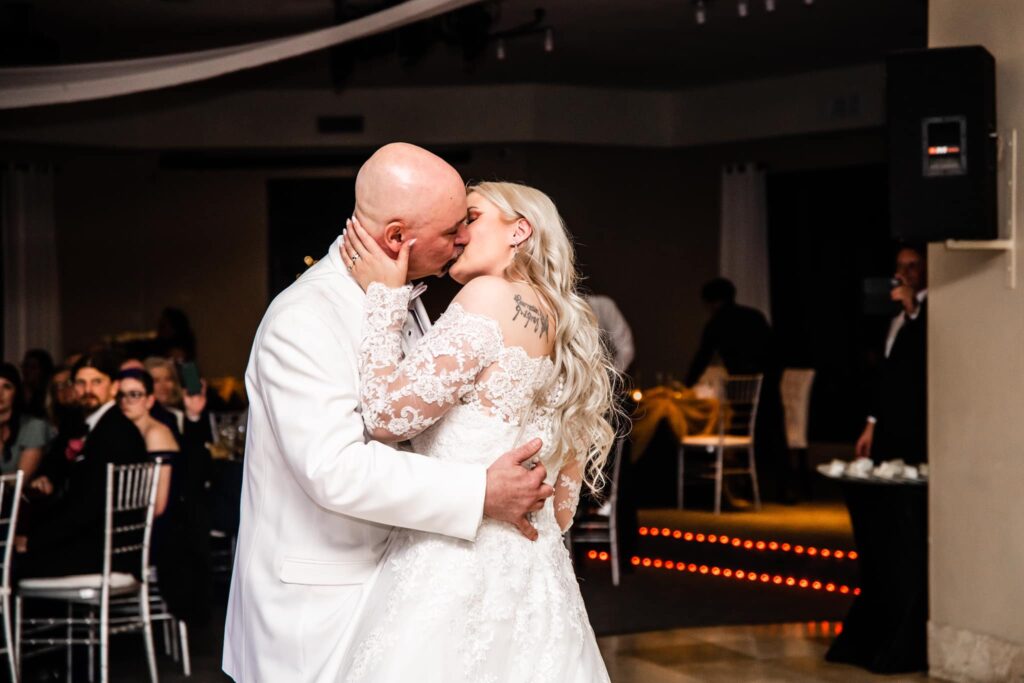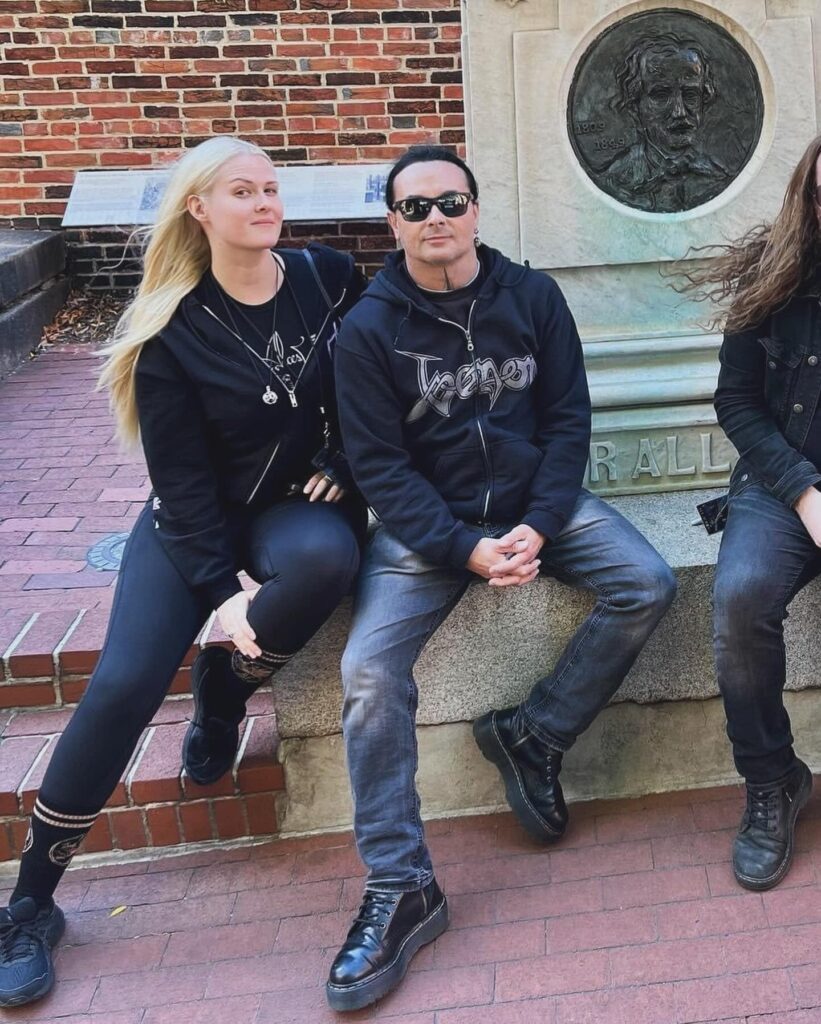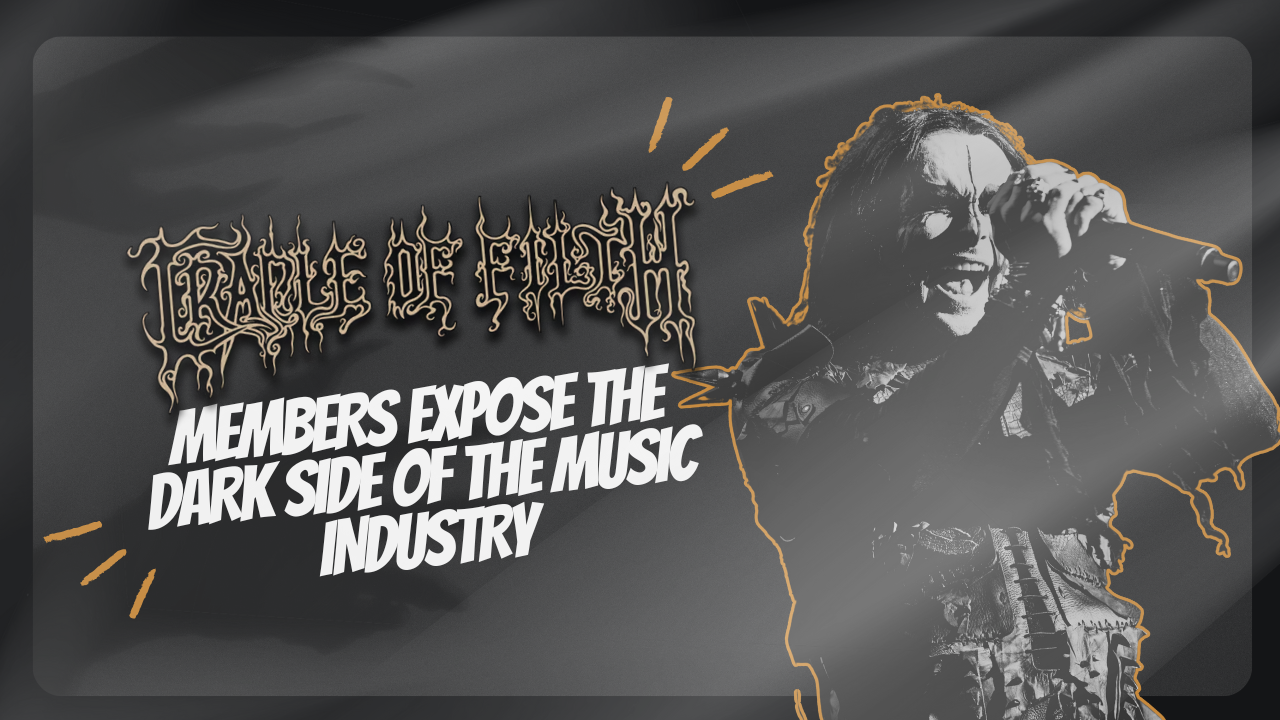There’s this idea we still cling to, that music happens in a room full of friends, guitars slung low, beers cracked open, and ideas swirling like cigarette smoke. That behind every song we love is a moment of joy, improvisation, or shared catharsis.
But that’s not what broke Zoe Federoff. It wasn’t a creative clash, or a lost muse. Nor was it what pushed her husband and bandmate, Marek “Ashok” Šmerda, out of Cradle of Filth either. It was years of low pay, contract shackles, and what he called “unprofessional behavior from people above us.”
This wasn’t a fallout in a rehearsal room. This wasn’t “creative differences.”
It happened onstage, mid-tour, under the glare of stage lights and amid the roar of the crowd.
For fans, it was shocking. For the musicians, it was inevitable.
Behind the theatrical corpse paint and gothic grandeur was a reality most fans never glimpse: grueling conditions, endless stress, and contracts so draconian they could break even the most loyal musician.
Why Did Cradle of Filth Members Quit The Band?
The first shock came when keyboardist Zoe Marie Federoff abruptly announced she was leaving the ongoing Cradle of Filth tour in August. In a restrained statement, she cited “personal reasons” and asked for privacy, while thanking her bandmates and urging fans to support her successor.
But in the social media era, no stone gets left unturned. As speculation swirled online, Federoff posted a second clarification, attempting to shut down rumors. “Ashok isn’t cheating. While the turmoil of being in the band has taken its toll on us, we remain very much certain that we love each other,” she wrote, defending her husband, guitarist Marek “Ashok” Smerda. She admitted that both had planned to leave the band later in the year, but “certain events sped that up.”

Ashok himself confirmed days later that he would exit after the tour, citing years of low pay, stress, and unprofessional behavior. “We simply do not feel like Cradle can provide for our future, and in fact hinders it,” he wrote. He revealed he had requested that all his compositions be removed from upcoming releases, including the much-discussed Ed Sheeran and Cradle of Filth collaboration. What was once billed as a charity single, he suggested, had turned into “foolish clown antics.”
The band’s response was swift, dismissing Ashok “effective immediately” and accusing him of trying to “illegally defame and derail the band.” Frontman Dani Filth assured fans the tour would continue, brushing off allegations against management as “unjust and unfounded.”
“Read The Contract”
Within days of their statements, documents surfaced that painted an even grimmer picture. A leaked seven-page contract, allegedly issued to Cradle of Filth’s session musicians, showed the kind of conditions that many in the touring underclass quietly endure.
Among the clauses:
- £200 per day for recording or performing, and £150 per day for travel days.
- A £25 per diem for daily expenses.
- An annual payment of £1,000 for the use of a member’s image in merchandise, videos, and promotional materials.
- A requirement to provide services on a “first-call” basis, effectively tying members’ availability exclusively to the band.
- A confidentiality clause prohibiting musicians from discussing business or management matters, even after leaving.
- A penalty clause allowing the band to charge departing musicians up to £1,000,000 in costs if proper notice was not given.
For many readers, the numbers jumped out immediately. £200 per day may sound reasonable, but in practice it amounts to subsistence-level pay once the irregularity of touring, unpaid downtime, and the high cost of living are factored in. Musicians reported being told not to supplement their income by playing with other bands, effectively trapping them in financial precarity. Federoff clarifies, “we make 150/day currently and 25K a year roughly in this band, to clarify the math.” I don’t think I need to compare these to the costs of living today for you to get the picture.
Smerda didn’t mince words:
“We do not make even the bare cost of living, yet we are told not to tour with other bands. It is madness to keep people locked in poverty for the ego of one person.”
The Human Cost
If the financial side sounds bleak, the human cost was worse. In a candid statement attached to the leaked documents, Zoe described the mental and physical toll of years on the road. The stress of constant conflict and insecurity, she revealed, contributed to a miscarriage during her first pregnancy.
“The toll it took on us also led me to miscarry our first pregnancy on tour. We chose to leave to save ourselves and create a better future for our family,” she wrote. “Now that we are out—the sun is shining, our family has hope.”
The couple’s words were harrowing. “We left because we were being used and paid less than the cost of living, the environment is toxic and threatening,” Zoe said. At one point she recalled being called “cancer” and “dead horse” by management when she questioned financial practices.

The statements also accused frontman Dani Filth of enabling or at least tolerating this culture. While not accused of direct abuse, he was described as shielding himself behind management while benefiting from their actions.
“He might not get his hands dirty, but in the end, he directs them,” Zoe wrote. “We hold the frontman responsible for hiring this management and never advocating for his team, only himself.”
Cradle of Filth has not issued a formal rebuttal as of press time, apart from hinting these were “attempts to illegally defame and derail the band”. But the accusations echo longstanding criticisms across the music industry: that band leaders and managers exploit hired musicians as disposable labor, reaping the rewards while offloading the risks.
“We Thought It Was Still About the Music”
That’s the gut punch for a lot of fans reading this. The idea that bands like Cradle of Filth, known for their anti-establishment image, their theatrical chaos, are still somehow rebels, still somehow “real.”
Ashok wasn’t a hired gun in the casual sense. He composed music, toured globally, and was a staple of the band’s lineup. Zoe brought presence, professionalism, and heart. But in the eyes of the contract, they were replaceable.
And they were replaced.
Within days, a new guitarist was flown in. A new singer took Zoe’s place. The machine rolled on, and fans kept singing.

But how many knew what was really happening behind the curtain?
How many still believe that bands operate like families, rather than startups with merch lines, IP rights, and touring insurance premiums that would make your head spin?
But the truth is, the economy around touring is crumbling as well.
Tours are being quietly cancelled. Costs are rising, while profits shrink. Legacy acts are doubling up on co-headline tours just to sell enough tickets. And once-grand stage productions are being replaced with LED screens and AI visuals.
Even bands that once played with dragons and choirs now play with spreadsheets.
What fans see is the spectacle. What musicians live is a grind, one increasingly dictated by liability, exclusivity, and silence. The very idea of “rock ‘n’ roll freedom” starts to look like a branding exercise.
This Isn’t About Cradle, It’s About Everyone
This story isn’t unique to one band. It’s the rule, not the exception. Touring musicians, even in famous bands, often live gig to gig, sometimes sharing hotel rooms, eating gas station food, and hoping they’re not cut from the next leg.
Because for every show you see, there are contracts you don’t.
Because for every loud chorus, there’s someone quietly breaking down in a dressing room.
Ashok and Zoe spoke out not to stir drama, but because no one else will. And unless musicians start breaking the silence, this broken machine will keep grinding through people.
One tour. One contract. One musician at a time.
Cover Image: Andreas Lawen, Fotandi




